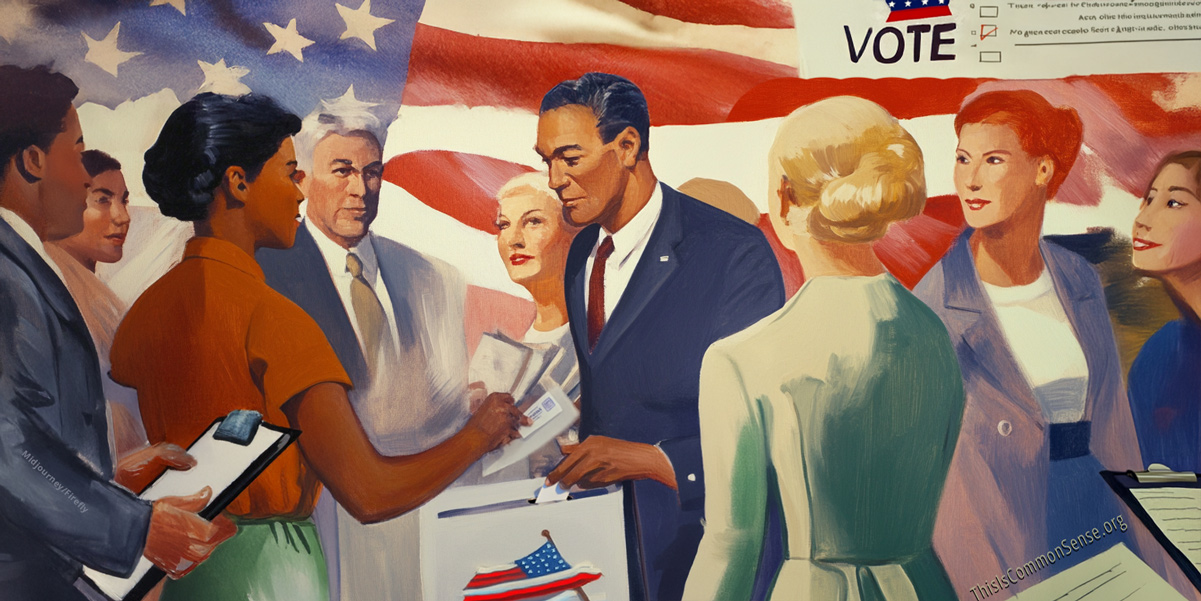Lately, Americans have been distracted by a federal-level election. But we’ve also had important state-level matters to attend to during the recent election cycle, including some legislatively referred questions about citizen initiative rights.
In my experience, whenever many politicians push for a ballot measure in order to supposedly “fix” an already-established right of citizen initiative, the goal is usually to make it harder for people to get a question onto the ballot.
Three questions on state ballots this November exemplify the pattern. Fortunately, voters have rejected the sly politicians’ gambit in each case.
In Arizona, Proposition 136 would have let opponents of a ballot question force a doubt about its constitutionality to be adjudicated before the measure can be placed on the ballot. (Nothing prevents a measure from being challenged in court after passage.) Of course, sometimes litigation, whether sincere or not, can’t be entirely resolved before proposed urgent deadlines, like the deadline for submitting signatures to place a question on the ballot.
Arizona voters clobbered Prop 136 with about 64 percent of the vote.
In North Dakota, voters had to again defeat a lawmaker-referred measure to weaken citizen initiative rights. Among other arbitrary burdens, Measure 2 would have increased the number of signatures required to send a question to ballot.
Voters killed it by about 56 to 44 percent.
Lastly, Colorado’s Amendment K sought to impose an earlier deadline for submitting initiative signatures. This, too, voters declined by about a ten point margin.
Good results. Voters tend to see the elite’s designs and react appropriately.
This is Common Sense. I’m Paul Jacob.
Illustration created with Midjourney and Firefly
See all recent commentary
(simplified and organized)
See recent popular posts

5 replies on “Exemplary Rejections”
With one important exception, California voters rejected all the state-wide measures that they certainly should have rejected, such as an attempt further to weaken the Proposition 13 of Howard Jarvis.
The important exception bundled increased penalties for various acts that indeed ought to be criminal with increased penalties for drug crimes.
That’s why a single subject clause can be helpful. But courts have abused that provision, where it exists, to allow things they like with multiple subjects and throw out measures that have several provisions that are reasonably related.
Because state courts are so notoriously corrupt, I would oppose adding a single-subject rule.
Yes, yes, and yes.
In theory, a single-issue rule prevents perverse log-rolling. But, not only have I observed wilfully perverse court decisions, but also some issues have legitimate linkages that even an honest court could feel compelled to ignore in the face of a single-issue rule. So single-issue rules can and have done more harm than good.
In Arizona, 228,000 folks who had registered to vote without ever providing verification of citizenship were allowed to vote. Potentially skewing the election results. Disenfranchising not just the citizens of Arizona, but quite possibly affecting control of the House and disenfranchising the whole country
You are spot-on, Drik. We do not know how many of that 228,000 are citizens or noncitizens, but that Arizona makes no attempt to verify it is clear. Plus, the federal government actively tries to prevent the states from checking their lists and requiring proof of citizenship.
Simply question: Why?